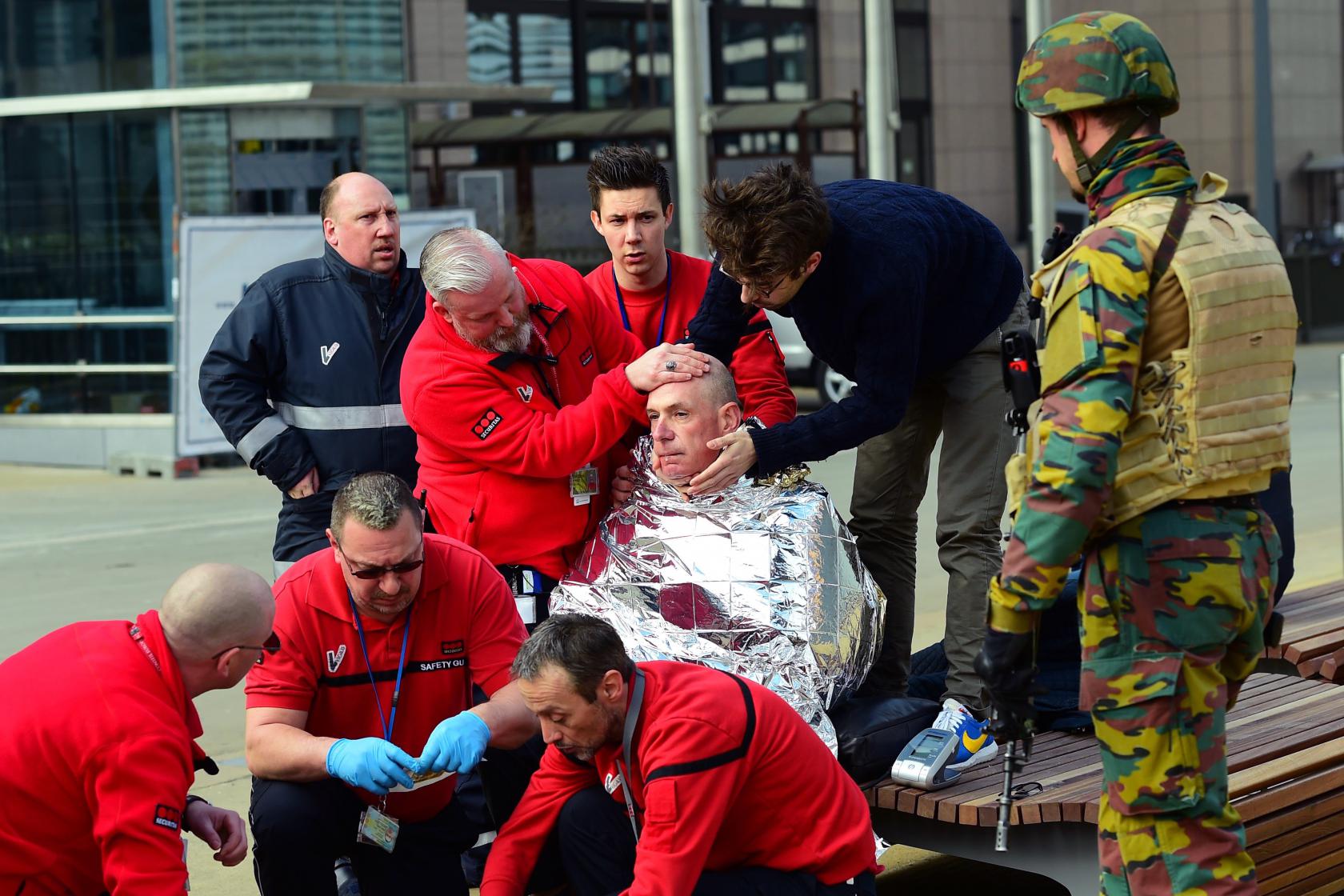As the news of the Brussels attacks spread through Europe, hardly anyone was as shocked and surprised as they had been in December. This tragic acceptance of terror as the new norm, is indicative of a gruesome, and by now undeniable, reality: Europe is facing the novel threat of Islamic terrorism. In the recent months, several of Europe and the EU’s defining features have been besieged and attacked . The Charlie Hebdo massacre was an attack on free speech and freedom of expression. The Paris Bataclan shootings and bombings were an attack on Europe’s lifestyle and conduct. Today’s kamikaze attacks were an assault on Europe itself and the European ideal.
When any country is so barbarously attacked, it is common practice for fellow democracies to show support by employing a rhetoric of unity. As in countless other occasions, commenting on the December Paris attacks, Obama spoke of ‘an attack on all humanity’. Today Hollande spoke of Europe being ‘the real target’ of Islamist terror. In the midst of these commendable but general remarks, often true meaning can be lost. The Brussels attacks really were an attack on Europe.
The targets of the attacks betray the real scope and foe of extreme Islamism. At 8am, the first bomb and the first shots were fired at Zaventem airport, one of Europe’s key air transport facilities. An hour later a metro, dangerously close to the European Commission followed the same fate. Islamic terrorism struck two aspects of Europe that, positively or negatively it may be, define it: internal travel and bureaucracy. While it is too early to jump to conclusions on the motivations behind the attacks, some speculation and analysis is certainly feasible. Owning up to its tradition of neutrality, Belgium had only marginally participated in the anti-Isis coalition bombings, and ended the airstrikes in June 2015. While Belgium’s middle-eastern intervention was used by ISIS to justify today’s acts of terror, this narrative raises many doubts. Belgium is by no means a high-profile interventionist power. Both Britain and Germany would have been more understandable targets, especially considering Belgium’s withdrawal from the hostilities almost a year ago, marking the attack as untimely. Even Salah Abdeslam’s recent arrest by the Belgian police can hardly be seen as a motivation for violence on such a scale. Also, the occurrence wasn’t even mentioned by the ISIS propaganda outlets that claimed responsibility for the bloodbath. After all, it would appear that the last survivor of the Paris attacks was invested by a bout of sanity and backed out of blowing himself up, an act which is unlikely to win influence in the ranks of extreme Islamism.
At this point, these attacks can be only seen as a war declaration against Europe. But now, as the dust settles and the dozens of dead are being mourned (at this point a precise number is unlikely to hold), Europe’s reaction is being awaited. All EU leaders have already harshly condemned the acts of violence, but the real question is whether this will translate into unified policy and response. Will the EU close or defund faith schools, which Mr. Blair has so kindly endowed? Will EU members take joint military action against the ISIS threat (which now has its own state in Syria and Iraq)? But amongst all these doubts, one thing is certain: the Brussels affair will draw the Union closer than ever, for a direct attack needs a strong response, and strength can only be achieved through unity.



